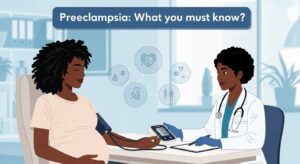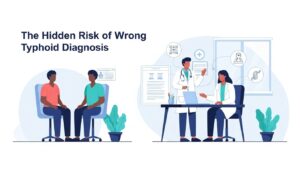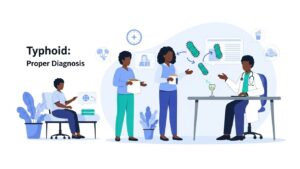Although there are several ways to lower the risk, preventing sudden cardiac arrest requires awareness and proactive care since it can occur without warning. This helpful manual from the professionals at Well-Life Hospital addresses how to prevent cardiac arrest through screening, lifestyle modifications, and knowing when to seek emergency care.
The importance of prevention cannot be overstated. Recognizing the early signs of cardiac arrest and acting quickly can save lives.
The importance of preventive
If cardiac arrest is not treated right away, it can often be fatal. The best strategy to lower mortality and enhance quality of life is prevention through risk assessment and long-term cardiac health, even when emergency response is essential.
Who is more vulnerable?
Over time, several circumstances and actions raise risk:
- Diabetes, elevated blood pressure, and elevated cholesterol
- Physical inactivity and obesity
- Heavy drinking and smoking
- Specific medications or coagulation issues
- A history of sudden cardiac death in the family
A screening plan is advised if you identify any of these in yourself.
Screening tests that make a difference
- Electrocardiogram or ECG: can identify irregular heartbeats and indications of past cardiac injury.
- An echocardiogram (Echo): shows the structure and function of the heart.
- Blood tests: Verify blood sugar, cholesterol, and risk factors for heart disease.
- Clinical risk assessment: To create a plan of action, our professionals review your medical history and test findings.
Targeted therapy, ranging from drugs to lifestyle changes, is made possible by early detection and can significantly reduce risk.
Lifestyle actions with strong evidence
- Frequent exercise: Try to get in at least 150 minutes a week of moderate exercise. Even walking quickly lowers risk.
- Healthy diet: A healthy diet should emphasize entire foods, such as fruits, vegetables, whole grains, legumes, lean meats, and healthy fats. Eat fewer fried and processed meals.
- Weight control: Keep your BMI between 18 and 25. Cardiovascular risk can be decreased with even a 5–10% weight loss.
- Give up smoking: One of the best things you can do for your heart health is to give up smoking.
- Limit alcohol intake: Avoid or use it sparingly.
- Avoid prolonged sitting: To lower the risk of blood clots, take brief exercise breaks if your job requires prolonged sitting.
Medicine and specialized treatment
Many patients take medicine in addition to lifestyle modifications, such as blood pressure medications, cholesterol-lowering statins, and other therapy as required. Our professionals monitor reaction and customize treatment based on each patient’s unique characteristics.
Identifying critical warning indicators
- Get medical attention right away if you suffer from:
severe pressure or pain in the chest, particularly when accompanied by perspiration or nausea - Abrupt dyspnea while at rest
- Collapsing or fainting
- Abrupt, intense lightheadedness or disorientation
Get checked when in doubt; prompt medical attention can save lives.
Encouragement of athletes and active individuals
Even sportsmen who appear to be in good physical condition might experience sudden cardiac episodes. Early risk identification can be achieved through pre-participation screening, family history, and attention to symptoms (e.g., chest pain during exertion, fainting).
Public readiness and community involvement
Increased availability of automated external defibrillators (AEDs) and CPR instruction in public areas significantly increases survival. Accessible defibrillators and basic life-support training should be considered by communities and organizations.
How Well-Life Medical Center can assist
Our cardiovascular team offers risk assessment, individualized prevention plans, and screening (ECG, Echo). Additionally, we connect patients with continuing support and offer lifestyle modification advice.
Set up a screening with one of our professionals:+234-9060004314
Visit: welllifehospital.com/articles to find out more.
FAQs
Q. Is it true that eating a balanced diet lowers the risk of cardiac arrest?
A: diet rich in whole foods and low in processed foods is indeed associated with a lower risk of cardiovascular disease.
Q:Is abrupt cardiac arrest a risk for athletes?
A: Infrequently, but definitely—athletes should be screened and aware of symptoms.
Q:What function do AEDs in the community serve?
A: When utilized promptly, fast defibrillation provided by AEDs significantly increases survival from cardiac arrest.






